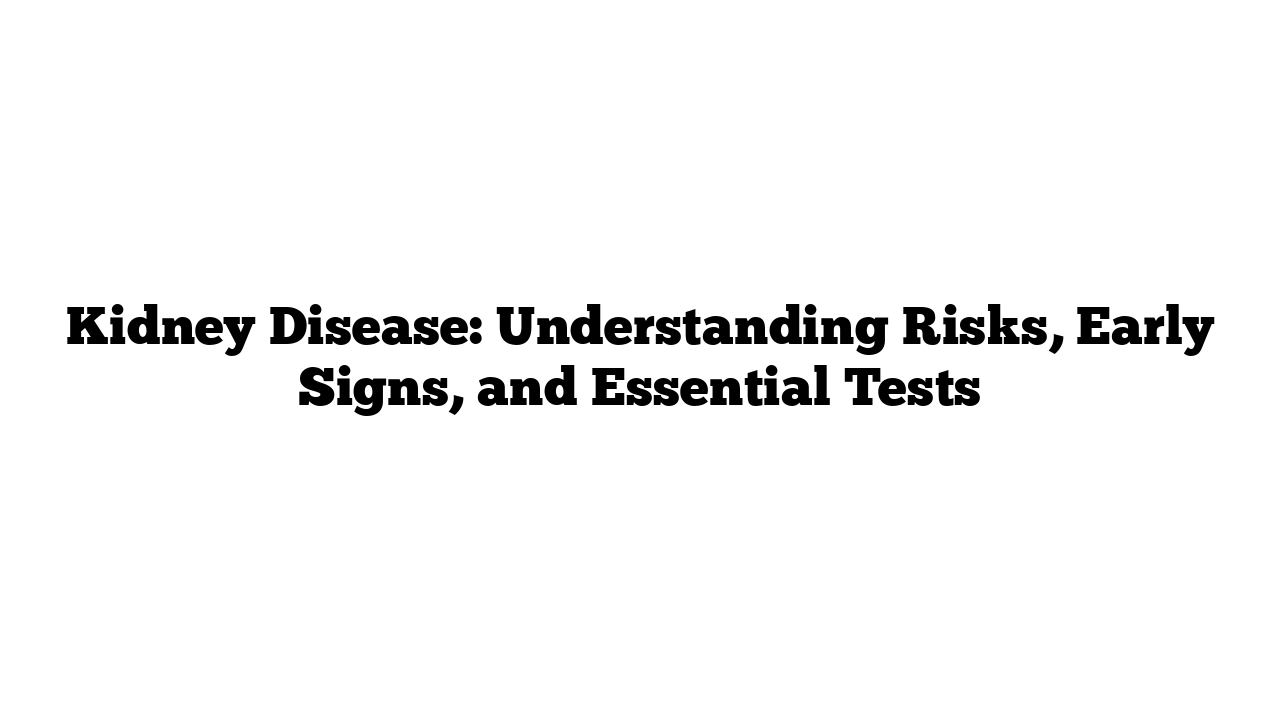Kidney disease is a silent condition affecting many individuals. Recent statistics reveal that one in seven adults in the USA has kidney disease, and alarmingly, nine out of ten people with this condition are unaware they have it. This means millions suffer without knowledge, making it vital to recognize the early signs and understand who is at risk.
Who’s at Risk for Kidney Disease?
1. Hypertension (High Blood Pressure)
Hypertension is one of the primary contributors to kidney disease. The heart and kidneys work closely together to manage and cleanse your blood. If blood pressure is high, it can damage the kidneys, and conversely, kidney disease can lead to high blood pressure. This interconnectedness highlights the need for regular monitoring.
2. Diabetes
Diabetes can severely impact kidney function. Elevated glucose levels in the blood damage kidney tissues over time. Moreover, diabetes often coexists with hypertension, further increasing the risk of kidney problems.
3. Poor Diet and Lack of Exercise
An unhealthy diet and a sedentary lifestyle can lead to obesity, which in turn can cause diabetes and hypertension. Maintaining a healthy weight is crucial for kidney health.
6 Early Signs of Chronic Kidney Disease (CKD)
Recognizing the symptoms of kidney disease early can be life-saving. Here are six key signs to watch for:
1. Changes in Urination
Look out for any changes in your urination patterns. This can include:
- Increased frequency
- Decreased volume
- Change in color
- Foamy urine, which may indicate protein leakage. Think of it like the foam when you pour soda or beer.
2. Fatigue
Feeling unusually tired—physically or mentally—can signal kidney issues. If daily tasks become more challenging, take note. This could affect your focus and overall energy levels.
3. Edema (Swelling)
Edema occurs when kidneys cannot remove excess fluid. Common areas for swelling include:
- Ankles
- Feet
- Eyelids
To check for edema, press your thumb on a swollen area. If a dent remains after you lift your thumb, it’s a sign of fluid retention.
4. Skin Changes
Dry, itchy, or pale skin may indicate kidney problems. Some people may even notice a yellow tint to their skin. If you find your skin becoming excessively dry or itchy, it’s worth investigating further.
5. Metallic Taste in the Mouth
A metallic taste or persistent bad breath can be an overlooked sign of kidney disease. Many people brush it off as something they ate, but it could be related to kidney function.
6. Unexplained Weight Changes
Weight loss or unexplained fluctuations can be symptoms of kidney issues. Some individuals may feel nauseous in the morning or lose their appetite for certain foods, particularly meat.
Essential Tests to Check Kidney Function
If you suspect kidney disease, consider these tests:
1. Blood Pressure Check
A simple yet effective first step. High blood pressure can indicate potential kidney problems.
2. Urine Protein Test
This test checks for protein in your urine, which can signal kidney damage.
3. Comprehensive Metabolic Panel (CMP)
A CMP evaluates various blood levels, including glucose, sodium, potassium, calcium, and creatinine, helping gauge kidney function.
4. Complete Blood Count (CBC)
This test checks red and white blood cell counts, which can indicate kidney issues, particularly low iron levels.
Cost of Tests
In the USA, common tests include:
- Kidney Function Test at Quest Diagnostics: approximately $100 for a blood and urine sample.
- Comprehensive Metabolic Panel: about $45.
- Complete Blood Count: around $35.
For those concerned about protein in urine, consider home testing strips available online for about $10.
Be Proactive About Your Health
You know your body best. If you notice any changes or feel something is wrong, don’t hesitate to consult a doctor. Kidney disease can often be prevented or managed effectively with early intervention.
Remember, you are your best advocate. Don’t wait for symptoms to worsen. Visit medicaltimes.io for more health articles and resources.
Taking charge of your health today can lead to a healthier tomorrow. Thank you for reading!
